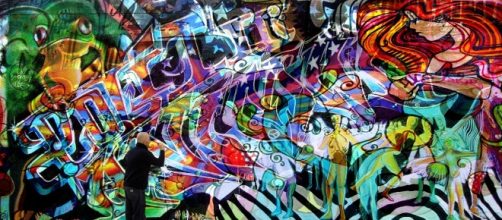Einstein said, "Imagination is more important than knowledge." Many sayings exist about the word Creativity. There are endless quotes from great artists such as DaVinci and Van Gogh. But can anything really define what creativity means?
The thing with creativity is that no matter what definition is out there, it cannot truly capture the abundance of connotations and meanings that are held within that very word. From our childhood, we are taught to be creative, but how can we be something if there is no concrete definition for such an abstract concept?
Artistic expression?
This ever-changing society has told us that creative people are only those who can draw, paint, or write.
To many of us, creativity means the ability to artistically express ourselves. However, creativity isn't just limited to artistic expression. Several arguments claim that creativity is unexplainable, and yet a few parts of it can be rationally discussed. Attempts to explain creativity result mainly in paradox. This paradox cannot be resolved at the individual level, only at the social level of tradition.
Different dictionaries have different definitions, which by all means is understandable. However, these definitions alone do not do the word "creativity" justice. In other words, there is no universal definition to describe what creativity means.
Different definitions?
According to oxforddictionaries.com, "creativity is the use of imagination or original ideas, in the production of Artistic Work."
This definition limits the ways that creativity can be harnessed and expressed. By saying that creativity is the use of original ideas, it implies that only people who have thought about something that has never been said or done are creative.
However, we look back at history and the history of art. The great sculptor, Michelangelo was inspired by the works of Lorenzo de'Medici. Also, stating that creativity can only come from original ideas, the implied statement is that artists like Michelangelo weren't creative. By stating that creativity can only stem from use in an artistic work is implying that scientists and inventors can't be creative.
According to dictionary.com, "creativity is the ability to transcend ideas, rules, patterns, relationships, or the like, and to create meaningful new ideas, forms, methods, interpretations, etc; originality, progressiveness, or inventiveness." This specific definition gives the word's meaning a little more wiggle room than the previous one, although this one has limits as well.
Creativity is not necessarily the ability to transcend ideas, rules, and patterns because not every human possesses that ability. However, there is creativity in each and every one of us. We see it throughout our lives, developing and helping us accomplish new heights. As children, we see the world as new, something new to explore, a place where our creativity and imagination can reach beyond the depths of our understanding.
However, as we mature and grow older, we are repeatedly told that creativity belongs in the arts and those who cannot paint or draw simply don't have enough creativity. But when that is being said, all of the greatest inventions were creative, were they not?
As a 21st-century society, the word "creativity" is being placed into a box, the very opposite of what we were taught. When assigning projects or essays, teachers would say "think outside the box" and "be creative" and a whole lot of other things that we never really took into account. But when we matured, those sayings were heard less and less as academic writing and grades became most of our priorities. And those who continued to try and be creative were continually shut down by society.
Creativity is an individual characteristic. What one person may consider creative might seem unoriginal to someone else. No one can define creativity because it's not a universal attribute. It differs from person to person, but at the end of the day, we all possess some form of it.


